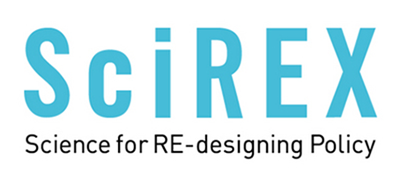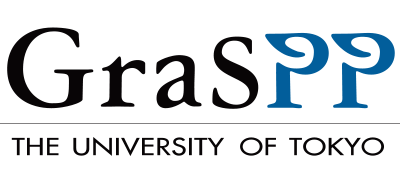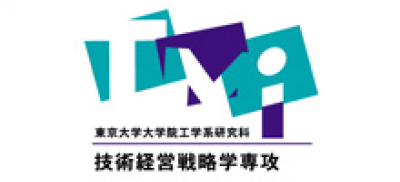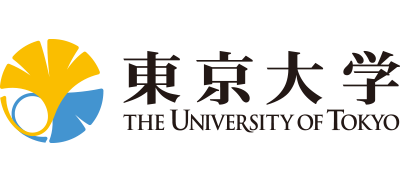Feeding Research Results into Policy Formulation

3. A Wide Range of Research Relating to STI Policy
—— Overview of independent research at STIG
Above, we have introduced the major research projects implemented through STIG under the leadership of SciREX. Below, we introduce the themes and contents of a number of research projects that are being implemented independently through STIG, separately from SciREX projects.
◆ Empirical research into data utilization and management and innovation creation
Masaru Yarime (Currently Associate Professor, Division of Public Policy, The Hong Kong University of Science and Technology (HKUST)) *At STIG from April 2013 to December 2016
In a research project based on priority issues, we had engaged in various research on data utilization, management and handling, etc., and this is an area of study of ever-increasing importance. One of my areas of research at HKUST currently is data utilization and innovation. In particular, given that the Chinese government strictly controls public data, we are looking into what kinds of companies use government data, what kinds of analyses they perform, and what types of innovation this actually leads to. Differences are likely to arise among countries where private sector corporate data is dispersed, countries where the state has strong information controls in place, and countries where platform companies are very strong. In light of that, we are seeking to implement a comparative analysis across different countries, including Japan, the United States, China, and those of Europe
Another consideration of increasing importance is to understand how and in what ways data can be shared internationally, while at the same time respecting privacy and security. To that end, we have joined the group on technology governance within the G20 Global Smart Cities Alliance【リンク→https://globalsmartcitiesalliance.org/】, and have compiled a policy roadmap that is now being tested in various cities.
◆ Research into platforms and processes for producing original knowledge and creative people
Sotaro Shibayama (Visiting Fellow, Institute for Future Initiatives, University of Tokyo)
The concepts that characterize scientific and technological innovation are novelty and originality, and the ability to create something original and different from other people, or something novel that has not existed in the past, is important. We attempted to approach this issue from two broad directions, namely, how to produce original knowledge and creative people.
In terms of knowledge production, we are developing a platform for understanding the environment that facilitates the creation of original knowledge. First, it is necessary to establish a way to identify and measure “original” concepts, and we are measuring these through text analysis of research papers published by scientists and researchers. We have also recently developed methods that incorporate natural language processing and machine learning.
Second, in order to understand knowledge creation, it is important to appreciate the details of the processes by which knowledge is born. To that end, we developed an application for scientists and researchers that incorporates mobile ethnography methods to track the process by which researchers come up with an idea, and engage in trial and error before finalizing their research findings. This application not only makes it possible to track the processes by which knowledge is created but also, conversely, to stimulate users with inputs and study their reactions to them.
In terms of fostering creativity, focusing mainly on young researchers, we are investigating the educational and research environment that students have experienced at universities and graduate schools, and their careers five to ten years after completion of their studies, in order to elucidate the kinds of environments that nurture creative people.
The second phase of the Coevolution Program is due to start from April this year. A similar project has also been launched in Sweden, so we hope to be able to conduct a comparison between the two countries in the future.
4. Enhancing Existing Research and Developing New Fields
—— Outcomes to date and outlook and challenges for the future
❖ Feeding research outcomes into all sectors of society
From the early days of STIG, we have been considering how best to collaborate with the various stakeholders in society, including policymakers, to leverage the results of our research on STI policy. To this end, we have held various policy platform (PoP) seminars, inviting experts, entrepreneurs, and government officials from a range of fields to share their practical perspectives, while also endeavoring to build various networks. These seminars have been attended by working professionals and retirees alike and have been highly meaningful in terms of providing policymakers with an interactive forum for honing their policymaking ideas. It is important to continue to provide such opportunities and build more diverse networks, and in so doing develop an environment that is conducive to feeding research outcomes into society.
❖ The diplomatic significance of multidisciplinary inter-university networks
Various research projects have helped to establish networks among universities, institutions, and organizations in both Japan and overseas. That these networks are functioning outside of government-level diplomacy can be said to be a major achievement. For example, in the field of space research, JAXA led the formation of the Asia-Pacific Regional Space Agency Forum (APRSAF), which has since engaged in a wide variety of activities. In addition, although the Japan International Cooperation Agency (JICA) manages cooperation activities in Vietnam at the government level, at the working level, projects include many people from universities, and these kinds of multilayered, bottom-up networks play a major role. These networks are well understood by the parties involved, but the next task should be to provide more objective evidence about them. It is important to promote the diplomatic significance not only of networks formed with a focus on short-term economic activities, but also of long-term networks centered on universities.
❖ Developing international themes (security, data handling, relationships with China, etc.)
The increase in the economic value of data is giving rise to major challenges relating to how to mutually use and manage such data. At the same time, as the development and rollout of COVID-19 vaccines have recently demonstrated, the sharing and control of data for the public good creates extremely complex situations internationally. Research on such themes will only grow more important in the future.
Although STIG has not yet been involved in many international research themes, the importance of interfaces with international politics and geopolitics, starting with the areas of security and space policy, will only continue to grow. Extremely important challenges for Japan, particularly in the area of science and technology policy, will likely be how to gather and analyze various information, including basic research from China, and how to build multifaceted and multilayered relationships. In that sense, through initiatives like the Coevolution Program, it will be important to actively research how to engage and approach other countries and regions, including designing institutions that are not only domestically but also internationally oriented.
STI policy research at the University of Tokyo has its roots in core fields such as industry-academia collaborations, risk governance and risk regulation, sustainability, and space. These are fields that we have pursued since before the inception of STIG. Our research in these areas has continued to evolve through priority issue projects and Coevolution Projects, giving rise to additional research areas and themes. Building on the outcomes we have achieved to date, we plan to advance our research efforts further based on the challenges set out above.



